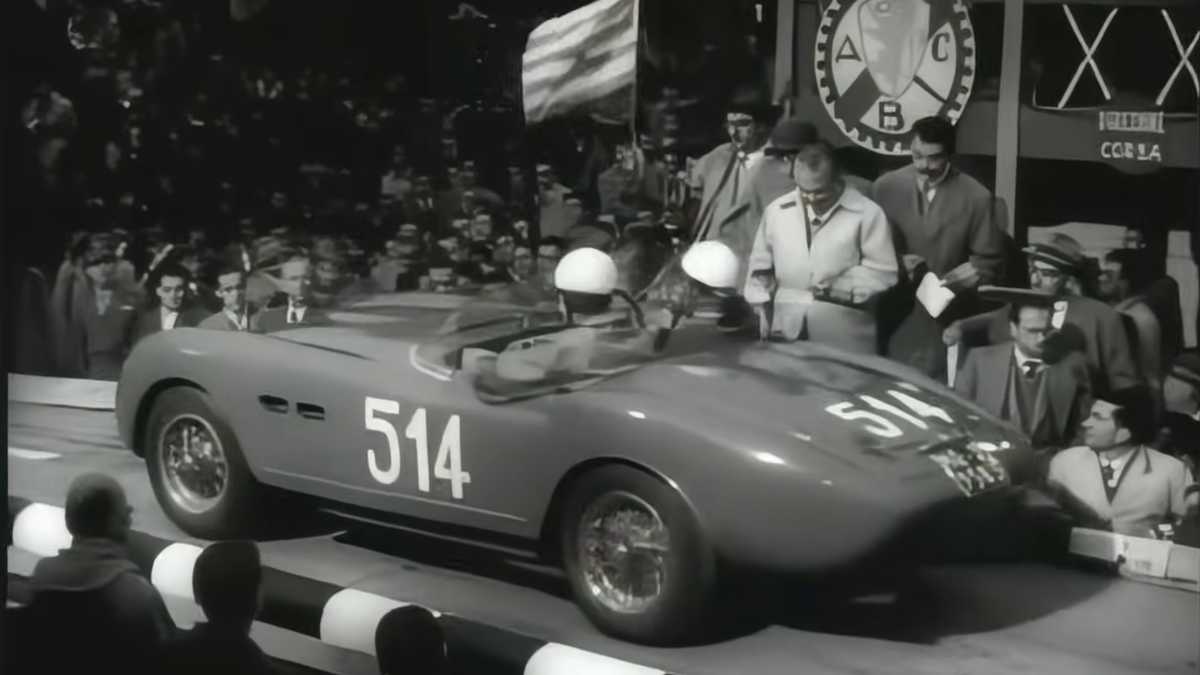The 1953-running of the Mille Miglia was absolutely packed to the gills with Italian drivers and automakers, racing for the 1,000 mile title from Brescia to Roma and back. Ferrari, Alfa Romeo, Maserati, OSCA, Lancia, Fiat, Moretti, and Bandini all had factory-backed racing efforts at this round, while foreign interlopers from Aston Martin, Jaguar, Gordini, Porsche, Deutsch-Bonnet, and even Chrysler tried their level best to get to the end. Over 400 cars competed in this event, and dozens failed to make it back to Brescia. This was among the most exciting racing prizes in Italy, and everyone wanted to take that trophy home.
How difficult was the Mille Miglia? Well, to put it in perspective, Juan Manuel Fangio, one of the greatest racing drivers of all time, never managed to win the race. He finished third in 1950, second in ’53 and ’55, and despite five attempts never reached the top step of the podium.
Stop reading if you don’t want to see any spoilers for a race from over seventy years ago. Giannino Marzotto with navigator Marco Crosara took their Ferrari 340 MM with Vignale coachwork through the 1,000 miles in just ten hours and 37 minutes. That’s an average of 94.14 miles per hour in 1953!
And he actually went even faster than that. Perhaps the best little anecdote from this particular race is that Marzotto’s hood got stuck shut, so his mechanics couldn’t accomplish the mid-race oil change that was specified. Marzotto left a later checkpoint, then remembered he still needed an oil change, so he made a u-turn to get back to his crew. The team cut a hole in the car’s hood over the oil fill port, and got the job done. There’s no telling how much time he lost in that little mishap, but he carried on and finished just 14-ish minutes ahead of Fangio.
And they did all of this with drum brakes and carburetors and whatnot. I’m not sure I can fathom that kind of speed in those cars, despite the fact that I’m pretty sure a similar time could be set by a good driver in a minivan these days.
Anyway, watch this video, because it’s quite an interesting way to see how the racing was reported in its time.







